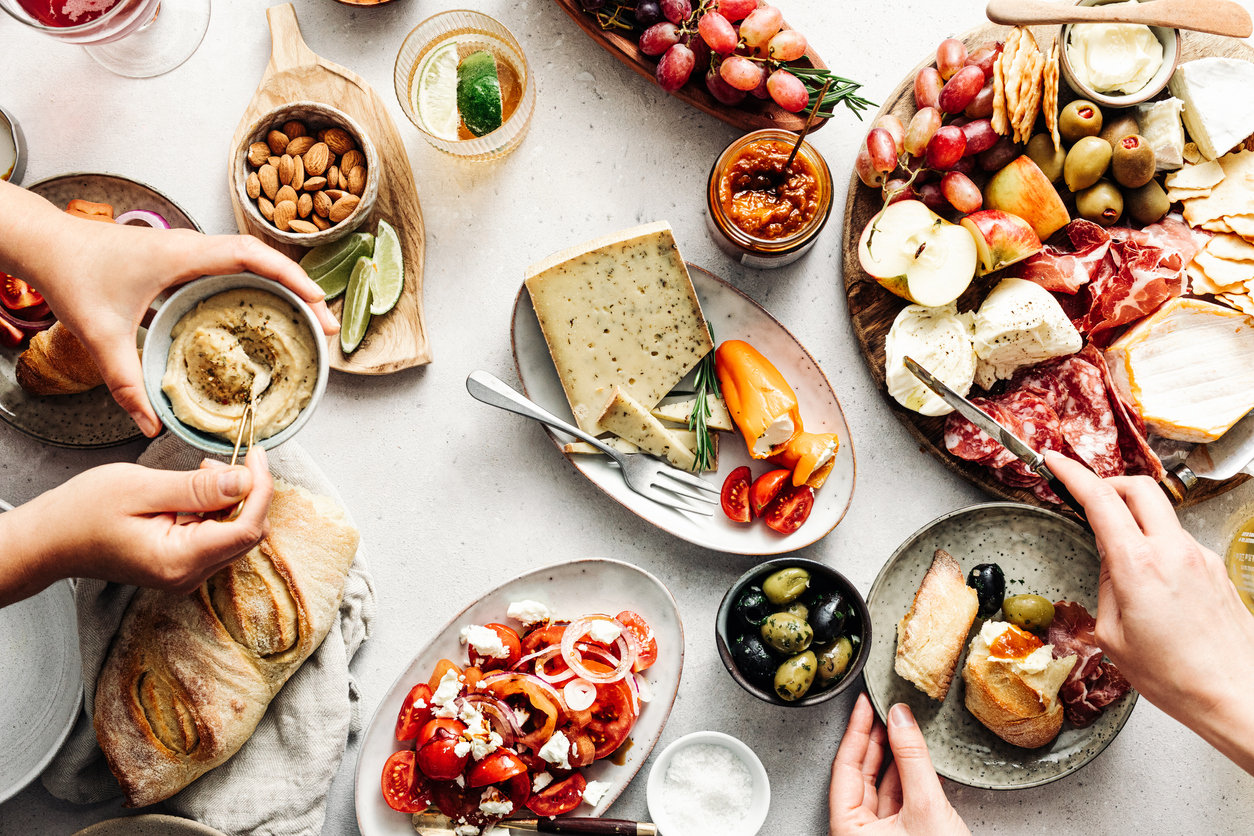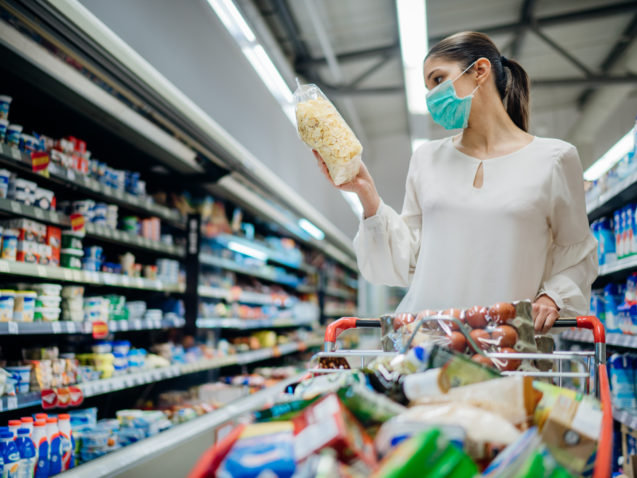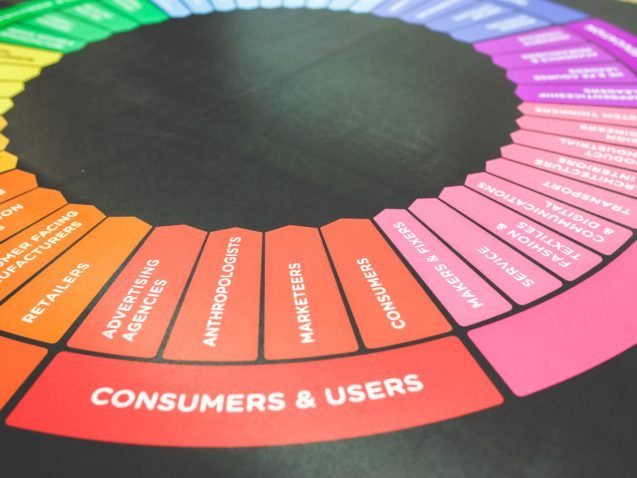People in Europe are used to finding their supermarket shelves stocked with food that is safe, diverse and affordable.
This is largely made possible thanks to Europe’s food and drink sector, which together with the farm-to-fork value chain, helps provide approximately 1.5 billion meals in Europe every day. With that comes shared responsibility, which is not only about quantity but also the quality of diets – in terms of their impact on our health and the environment.
Today’s consumers demand increased availability of – and easier access to – more nutritious options which are tasty, convenient, affordable and produced in an environmentally-friendly way. They are looking to policymakers, food producers and others to drive action and deliver change.
Mindful of the need to bring people’s diets and lifestyles into better balance with human health and planetary boundaries, the food industry is a fundamental part of the solution.
In a previous article, I wrote about how innovation in food processing contributes to healthier and more sustainable diets, such as through reformulation of processed foods and new nutritious food product launches. Also companies and categories that cover more ‘traditional’ quality products and ingredients are a vital and positive part of the transition towards better diets, for instance through more emphasis on balanced, mindful eating and drinking and improving environmental footprints.
“What unites us all, is the common desire to further improve the high standards of Europe’s food and diets by making production and consumption more sustainable”
What unites us all, is the common desire to further improve the high standards of Europe’s food and diets by making production and consumption more sustainable, so that we can tackle current and future challenges hitting our societies and our industry – be it climate change, economic downturn, the societal burden of diet-related noncommunicable disease, and more.
What is FoodDrinkEurope doing to stimulate more balanced, healthy and sustainable diets?
FoodDrinkEurope recognises the need for the European food and drink industry to play an active role in helping to facilitate and promote more balanced diets. Here are some ways how we are contributing to this agenda:
- Supporting and encouraging continued action by food industry actors – small and large alike – towards more balanced, healthy and sustainable diets and lifestyles, for instance through FoodDrinkEurope’s “Eat and Live Well” initiative, showcasing and inspiring on-the-ground action by companies and organisations in the sector.
- Teaming up with the European Commission and other stakeholders in supporting the prevention, control and reduction of noncommunicable diseases.For instance, FoodDrinkEurope has expressed its support for Europe’s Beating Cancer Plan as an essential step in the fight against this devastating disease and has offered the industry’s expertise in its implementation. Industry can contribute with valuable solutions such as specialized nutrition for cancer patients and promoting increased consumption of fibre and wholegrain.
- Co-creating an EU Code of Conduct for responsible business and marketing practices, which seeks voluntary sustainability commitments from companies and other parties in the food value chain, and encouraging members to engage actively and ambitiously in this process (read our president’s speech here).
- Contributing to an EU process revising the EU’s food labelling law, improving the way companies provide information about food products, such as nutrition and date marking, to consumers.
- Aligning the Strategic Research and Innovation Agenda of the European food and drink sector in the European Technology Platform (ETP) “Food for Life” to the objectives of the European Green Deal and the Farm to Fork Strategy.
What does the food and drink sector need from policymakers to be able to scale-up, cut through unnecessary ‘noise’ in the debate and become more effective?
Policymakers can help us to move better, faster towards more sustainable, healthy diets across the EU by, amongst others:
- Providing space for all actors – small and large alike, animal- or plant-based, from farm to fork and related – to constructively play their part in the best way they can, taking everyone along. Allow companies to trial and experiment, without prejudice. Help facilitate local initiatives and pragmatic collaborations, invest in infrastructure, and remove regulatory and innovation boundaries to sustainability.
- Maintaining and improving the science and evidence base. Avoid unfounded discrimination or stigmatisation of people, products, ingredients, methods and processes. Invest in reliable, comparable, up-to-date pan-European dietary consumption intake data.
- Helping to (re-)build consumer trust in science-driven innovation and food processing, for instance by supporting consistent risk/benefit communication across EU Member States (e.g. on food ingredient safety and benefits).
- Developing an integrated approach to educate and raise consumers’ awareness on food, nutrition, environment, diets and lifestyles. Recognise that besides providing nutrients to our bodies, food plays an important socio-cultural role in the lives of people. Acknowledge different starting points and diversity of historical, social, cultural and economic contexts as well as consumer needs and preferences across Member States throughout Europe.
- Helping to further strengthen the business case for investment in nutrition and sustainability. Recognise efforts of the European food and drink sector to date in supporting healthier and more sustainable behaviours, and provide further incentives to scale-up best practices.
Due to the multi-factorial nature of the societal challenges, transition on the food production side cannot be sufficient on its own. The interplay with consumers and other actors will remain critical as the transition can only work if it is translated into changing behaviours on all sides. Indeed, real systemic change, driven by a longer-term shared vision, co-ownership and collaboration with others in- and outside the value chain, is a prerequisite for success.
The EU Farm to Fork Strategy, as well as global multilateral processes such as the United Nations Food Systems Summit (UNFSS) and the Tokyo Nutrition for Growth (N4G) Summit, offer momentum to get this off the ground more seriously in the coming years and evolve the engagement between actors into a true solutions-driven public-private collaboration model.
United for healthy and sustainable diets
As a leading sector, Europe’s food and drink industry recognises that it still has a long way to go in reaching its health and sustainability ambitions, while not ignoring the need to uphold and strengthen the economic viability of our food business operations. This is not an simple exercise. Our sector and its companies do not claim to be perfect and are having to juggle many different elements at the same time. There will be failure and success along the way. Companies will continue to reflect critically on some of their current business practices, letting them evolve into better ones. Some companies and sectors will lead, whereas others will catch-up. Importantly, let’s not moralise or judge; let’s learn instead and positively encourage each other as part of the wider collective.
In the same way we have been able to build Europe’s great food reputation over the past decades, our sector is determined to make the next step-change for better diets in Europe and beyond. We’re looking forward to work together with you to make that happen!








